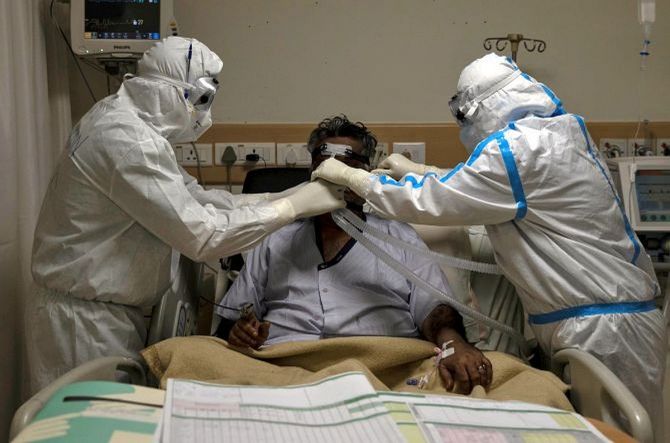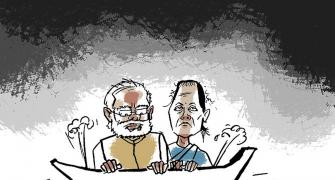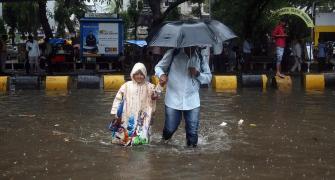To cater to the antiviral fabrics and antimicrobial segment, almost all the Indian big textiles brands, including Reliance, Arvind, Aditya Birla, Donear Group, Raymond, and Siyaram have entered the market.
Companies started their journey with reusable masks and PPE kits, and today, they are offering a range of PPE clothing along with fashion and casualwear.

With the coronavirus (Covid-19) pandemic abating, companies are turning to preventive measures to boost their revenues.
To cater to the antiviral fabrics and antimicrobial segment, almost all the Indian big textiles brands, including Reliance, Arvind, Aditya Birla, Donear Group, Raymond, and Siyaram have entered the market, which is expected to surpass $20.5 billion by 2026, globally.
Companies started their journey with reusable masks and personal protective equipment (PPE) kits, and today, they are offering a range of PPE clothing along with fashion and casualwear.
Research shows that viruses and bacteria can remain active on textile surfaces for up to two days.
Peter England, a menswear brand from the Rs 8,743-crore Aditya Birla Fashion and Retail, has collaborated with Switzerland-based HeiQ to bring the unique HeiQ Viroblock fabric technology to India.
Under this collection, Peter England will be launching workwear, loungewear, and face masks.
Antiviral apparel starts from Rs 1,800.
Arvind will start manufacturing antiviral shirting and suiting material, readymade garments, and face masks.
It has partnered textile innovation firm HeiQ Materials AG, in association with Taiwanese specialty chemical major Jintex Corporation, to introduce the anti-virus technology in India.
The company will create these products using the newly launched antiviral textile technology in India under its brand Intellifabrix.
Carlo Centonze, chief executive, HeiQ Group, said, “HeiQ Viroblock is a special combination of our advanced silver and vesicle technology that has proven effective against Covid, with 99.99 per cent reduction of virus within 30 minutes.”
Kulin Lalbhai, executive director, Arvind, in an interview, had said that, while initially, products would be launched under the Arvind Intellifabrix brand, the company will extend it to other consumer brands in its portfolio.
Arvind markets brands like Arrow, US Polo Association, and Flying Machine in India, among several others.
The company is targeting around 10 per cent of the annual menswear sales of Arvind Intellifrabrix of about Rs 1,000 crore from this fabric.
Donear Group has collaborated with menswear brand Zodiac to launch antiviral shirts called Securo.
The company claims its technology kills 99.997 per cent coronavirus on fabric within 2-5 minutes.
Prices start from Rs 250 per metre for shirting, and from Rs 400 per metre for polyviscose and slightly higher for wool blends.
Rajendra Agarwal, managing director, Donear Group, said demand for such products has shot up and it is coming from across the country.
He added, these products would cost 10-15 per cent more than other products.
Raymond, India’s largest integrated worsted suitings maker, said it is utilising its garment manufacturing factories in Bengaluru to manufacture PPE products, including coverall suits and masks, which are currently being supplied to government, corporate sectors, and hospitals.
Siyaram, one of ‘ most well-known fashion textile brands, has launched its anti-coronavirus range of fabrics.
The fabrics, launched to fight against the spread of Covid-19 outbreak, have been tested by World Health Organization-approved laboratories.
The new anti-coronavirus fabric provides protection from the virus and is developed in association with HeatlhGuard, an Australia-based firm.
Loyal Textile Mills, earlier this month, launched Viral Shield, a line of Covid-19 antiviral, reusable PPEs, masks and protective fashionwear range.
The series has been launched in collaboration with Reliance Industries and HeiQ from Switzerland.
“The coronavirus disintegrates quickly within hours on porous surfaces like fabrics.
"The masks are used to prevent viral droplets to escape and spread of infection.
"Apart from the use of fabric for making masks, there is no data that the fabric has antiviral property that can kill the virus instantaneously," said Dr Manoj Goel, director and unit head, pulmonology, pulmonary critical care & sleep medicine, Fortis Memorial Research Institute, Gurugram.
“Antimicrobial clothes are talk of the town now.
"We don’t have enough scientific data on whether people using them get less infections compared to others.
"We must also understand that for infections such as Covid, clothes are not the main mode of transmission.
"It is doubtful that these fabrics, even if antimicrobial, will be able to reduce the transmission of infectious diseases,” said Dr C Jagadeesh, senior consultant in internal medicine, Apollo Hospital in Chennai.
Photograph: Danish Siddiqui/Reuters










